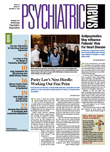APA has begun work on DSM-V. It is time to question the use of the term “schizophrenia.”
Today we have a better understanding of the pathology of many brain areas and their lack of integration in mental disorders. We could use a more accurate, less-stigmatizing diagnostic term to facilitate looking for prodromal signs and begin earlier intervention and aid in the recovery process with psychoeducation, group and family therapy, and occupational and interpersonal skills education. This new term would emphasize optimistic potentiality rather than a purely categorical disease with a negative prognosis and be more in keeping with a dimensional approach.
When clinicians look for prodromal symptoms and signs of the early high-risk phase, they can achieve better treatment outcome than if they wait until the disorder progresses to a severe and often relatively irreversible phase. In addition, the term “schizophrenia,” particularly in the later phases, evokes hopelessness and stigma, and often because of that poor prognosis, diagnosis and treatment are delayed until the acute symptoms become manifest.
Pinel in France in the early 1800s called the disorder“ demence” because of the impairment of the thinking faculty. In 1861 Morel used the name “demence precoce” to describe a 14-year-old boy with the disorder. In 1871 Hecker described“ hebephrenia,” and three years later Kahlbaum described“ catatonia.” Psychiatrists also used terms such as lunatic, mad, insane, idiotic, demented, and possessed—terms without scientific basis that gradually fell out of favor but created a stigma with unfortunate consequences for the mentally ill.
Those syndromes were first described as a single disorder by Kraepelin in 1896 and latinized to “dementia praecox”: “dementia” because of the cognitive deterioration and “praecox” because the symptoms appeared in early adulthood. He divided these patients into four categories: hebephrenia, catatonia, paranoia, and simple, the last of which is characterized by basic cognitive deficits.
In 1911 Bleuler believed that Kraepelin's term was inaccurate and that the condition was not a single disease but a heterogenous grouping. He used the term “schizophrenia,” meaning splitting or loss of harmony between various groups of mental functions, and he objected to “dementia praecox” because patients did not always deteriorate, the onset of the disease was not always in early adulthood, and it did not appear to be a single disease but a group that included several diseases. The primary symptoms were disturbances of association, affect disturbances, autistic thinking, and ambivalence; hallucinations and delusions were secondary symptoms.
Ninety years later we are still using Bleuler's term. In DSM-IV two of the major diagnostic categories of illness are mood disorders and anxiety disorders. Would it not decrease stigma to replace the category of schizophrenia and other psychotic disorders with another category of disorders with a term more consistent with modern findings of brain pathology that would encourage the clinician to look for prodromal signs and begin earlier intervention? It would be better to call these disorders cognitive disorders, perceptual disorders, or, as Japan now calls them, integration disorders.
